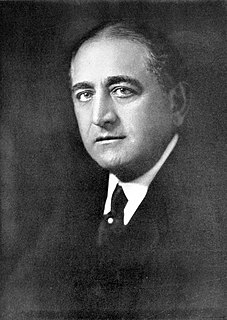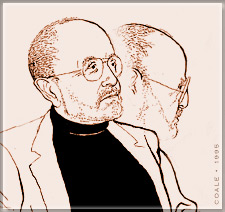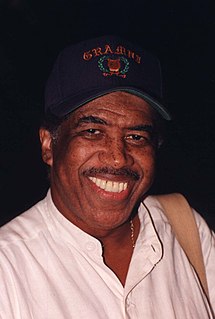A Quote by Diana Gabaldon
If you call it a romance, it will never be reviewed by the 'New York Times' or any other respectable literary venue. And that's okay. I can live with that.
Related Quotes
I have no objection to well-written romance, but I'd read enough of it to know that that's not what I had written. I also knew that if it was sold as romance I'd never be reviewed by the 'New York Times' or any other literarily respectable newspaper - which is basically true, although the 'Washington Post' did get round to me eventually.
New York was always more expensive than any other place in the United States, but you could live in New York - and by New York, I mean Manhattan. Brooklyn was the borough of grandparents. We didn't live well. We lived in these horrible places. But you could live in New York. And you didn't have to think about money every second.
Stephen King writes mass fiction but gets reviewed by the New York Times and writes for the New Yorker. Critics say to me, "Shut up and enjoy your money," and I think, OK, I'll shut up and enjoy my money, but why does Stephen King get to enjoy his money and get reviewed on the cover of the New York Times Sunday Book Review?
I follow my own nose. So I read things that are different. People will always say to me, "Have you read Robert S. Bosco's latest novel?" or "Have you read so and so's history of Peru, which is reviewed in the New York Review of Books and the New York Times and has a buzz about it?" I don't even know what you're talking about. I'm like from another planet. I'm a pygmy from the jungle.
Just like that. Gone forever. They will not grow old together. They will never live on a beach by the sea, their hair turned white, dancing in a living room to Billie Holiday or Nat Cole. They will not enter a New York club at midnight and show the poor hip-hop fools how to dance. They will not chuckle together over the endless folly of the world, its vanities and stupid ambitions. They will not hug each other in any chilly New York dawn. Oh, Mary Lou. My baby. My love.
The New York Times will tell you what is going on in Afghanistan or the Horn of Africa. But it is no exaggeration that The New York Times has more people in India than they have in Brooklyn. Brooklyn is a borough of two million people. They're not a Bloomingdale's people, not trendy, sophisticated, the quiche and Volvo set. The New York Times does not serve those people.
It will be my earnest aim that The New York Times give the news, all the news, in concise and attractive form, in language that is permissible in good society, and give it as early if not earlier, than it can be learned through any other reliable medium; to give the news impartially, without fear or favor, regardless of party, sect, or interest involved; to make of the columns of The New York Times a forum for the consideration of all questions of public importance, and to that end to invite intelligent discussion from all shades of opinion.
Dig: I'm Jewish. Count Basie's Jewish. Ray Charles is Jewish. Eddie Cantor's goyish. B'nai B'rith is goyish; Hadassah, Jewish.
If you live in New York or any other big city, you are Jewish. It doesn't matter even if you're Catholic; if you live in New York, you're Jewish. If you live in Butte, Montana, you're going to be goyish even if you're Jewish.
When I got my very first phone call that I'd hit the 'New York Times' list, I had a small rush of 'I've made it!' But the next morning, it occurred to me I didn't know what it was, so I called my agent and asked what being a 'New York Times' bestselling author really meant. He informed me that I was now a thousand pound gorilla.
In New York, I was excited about the music in New York because the only music that I was more or less involved with in the South was either country and western or hillbilly music as we used to call it when I was a kid and, ah, gospel. There was no, there was no in between. And when I got to New York all the other musics that's in the world just came into my head whether it was the classics, jazz, I never knew what jazz was about all, had heard anything about jazz.


































